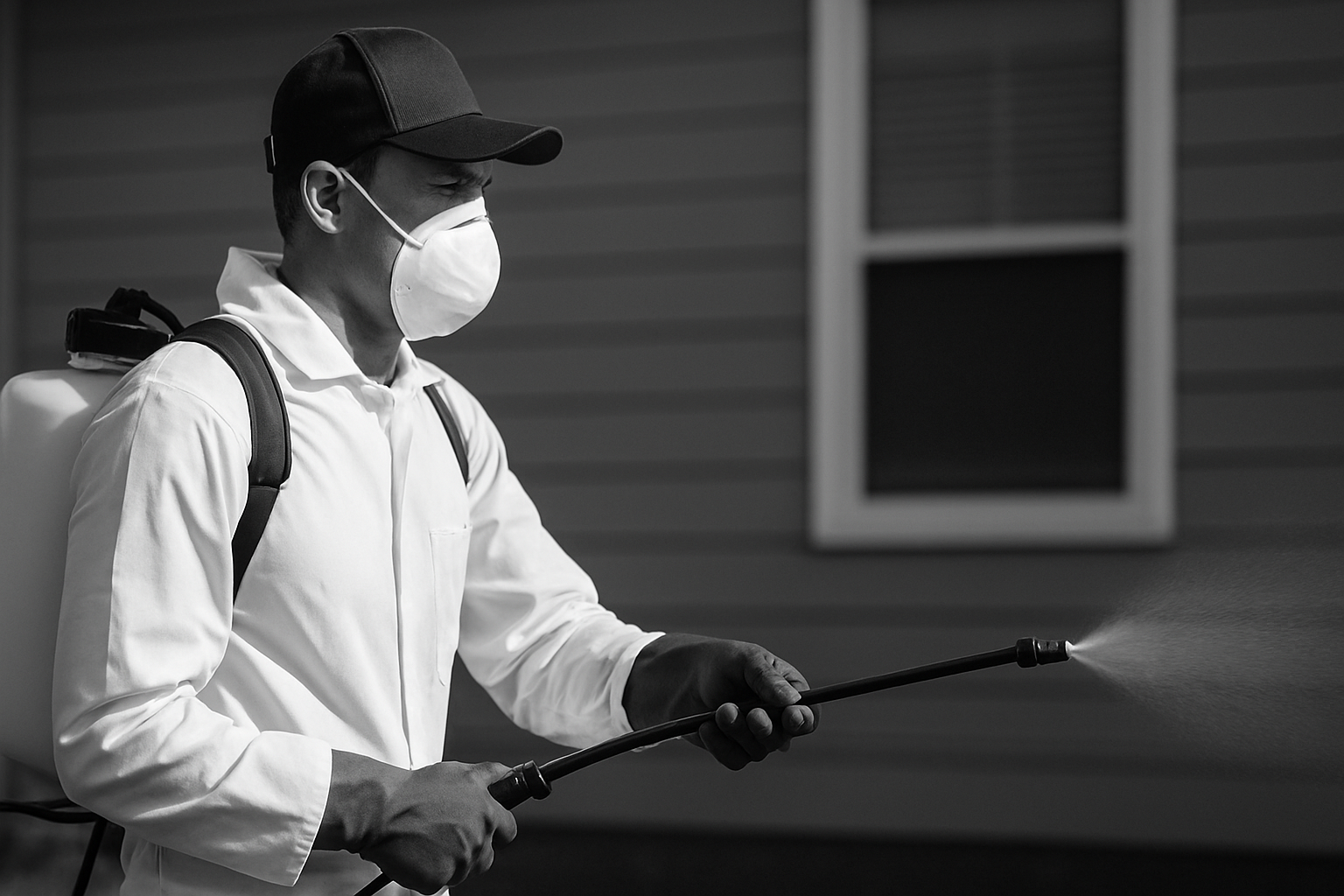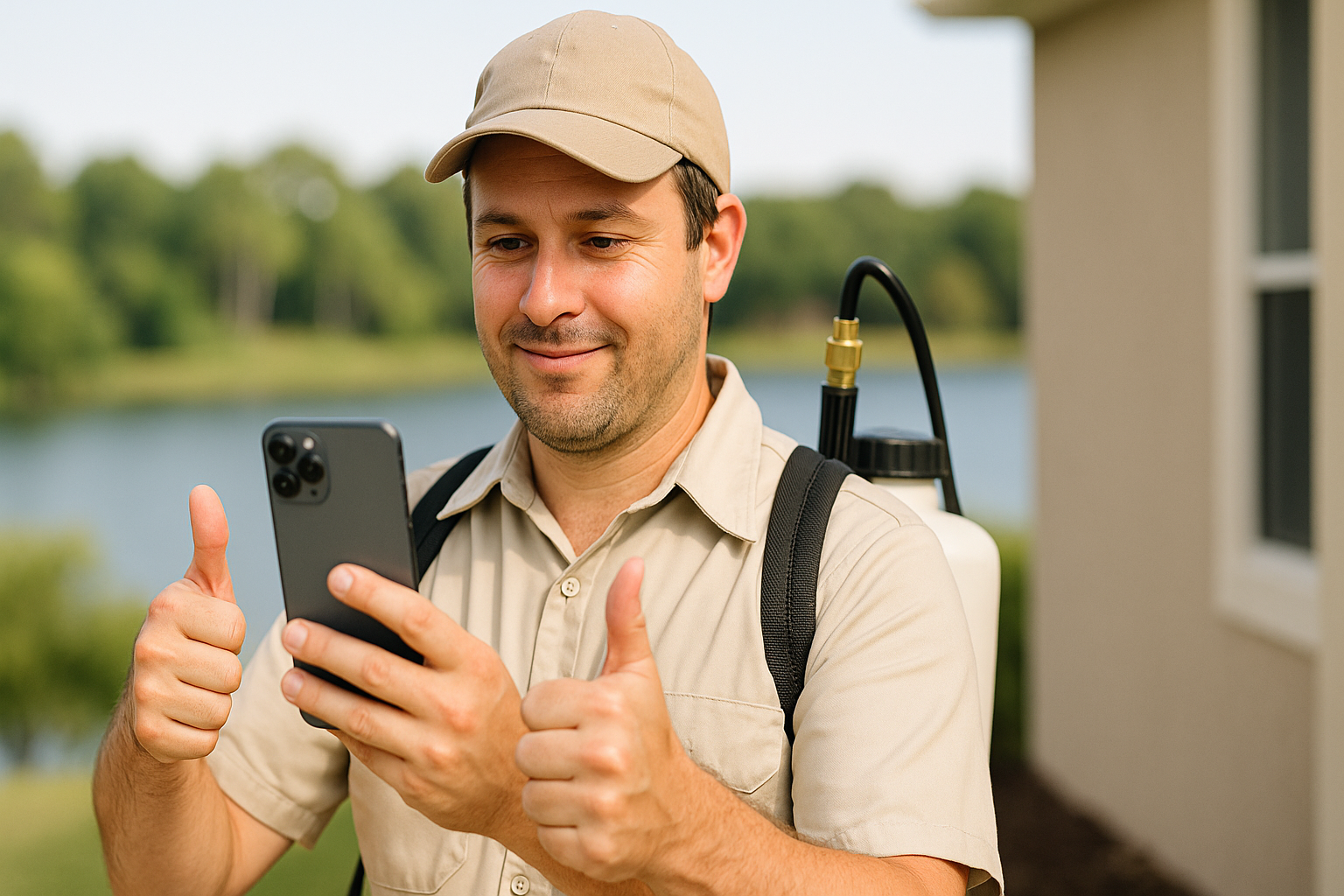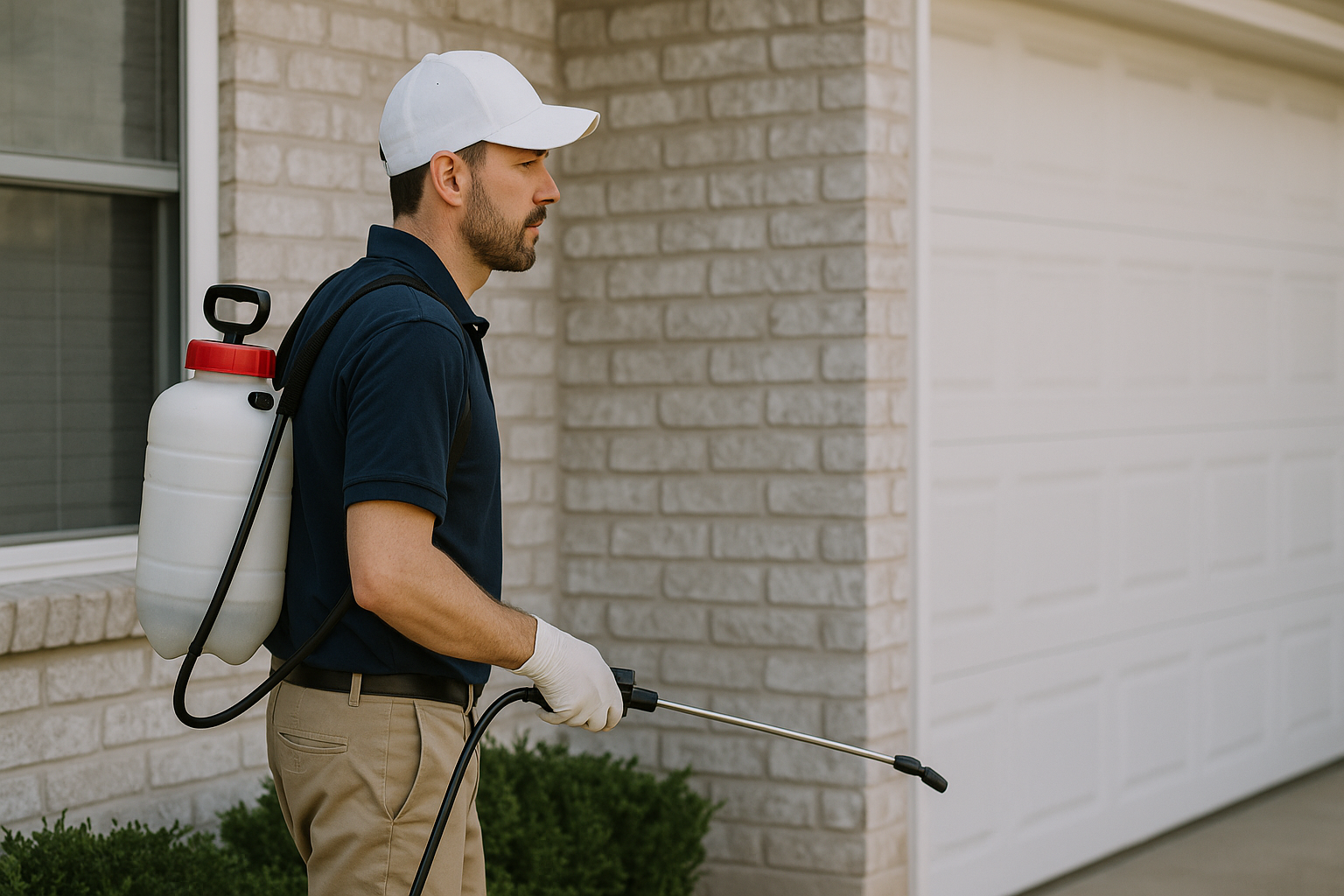Table of Contents
Introduction to Pest Control
Pest Control is a crucial aspect of maintaining health, safety, and property integrity in Dubai’s unique environment. The city’s rapid urbanization combined with its desert climate creates ideal conditions for various pests to thrive, which often pose risks to both residents and businesses. Implementing effective Pest Control measures helps to prevent infestations that can lead to health hazards, structural damage, and economic losses.
This article explores comprehensive strategies, local regulations, and practical tips tailored for Dubai’s residents and commercial sectors, highlighting how pest management can be managed successfully with modern sustainable practices.
Common Pests Found in Dubai
Understanding the typical pests found in Dubai is essential to implementing the right pest management tactics. The region’s climate supports a variety of challenging pests including:
- Rodents: Rats and mice are prevalent in urban areas such as Business Bay and Dubai Marina, often invading homes and food establishments.
- Cockroaches: Common in both residential and commercial properties, they can contaminate food and surfaces.
- Termites: These wood-boring insects threaten building infrastructures, especially older properties in Downtown Dubai and Nad Al Sheba.
- Bed Bugs: Increasingly reported in accommodations and hospitality venues across Dubai.
- Flies and Mosquitoes: Standing water in urban environments increases their populations, causing nuisance and health concerns.
- Ants and Spiders: Frequently found indoors and outdoors, disrupting comfort and hygiene.
Recognizing these pests early allows for timely intervention, reducing damage and health risks.
Importance of Pest Control in Residential and Commercial Settings
The impact of pests in Dubai extends beyond mere nuisance. In residences, pest infestations can lead to allergies, asthma, and vector-borne diseases affecting family members. Commercial settings such as restaurants, retail shops, warehouses, and offices risk reputational damage, regulatory fines, and customer loss due to visible pest problems or contamination.
Dubai Municipality mandates strict guidelines to maintain sanitary environments, particularly in sectors like food handling and healthcare. Effective pest management not only complies with these regulations but also safeguards the community’s wellbeing and business continuity.
Integrated Pest Management Strategies
Integrated Pest Management (IPM) represents a balanced, effective approach to pest management by combining multiple techniques tailored to the pest and environment. Key components of IPM in Dubai include:
- Inspection and Identification: Precise assessment to determine pest species and infestation levels.
- Preventive Measures: Eliminating entry points, managing waste properly, and improving sanitation to reduce pest access.
- Biological Controls: Using natural predators or non-toxic substances where feasible.
- Chemical Treatments: Targeted use of insecticides and rodenticides authorized by Dubai’s health and environmental authorities.
- Monitoring and Follow-up: Regular checks post-treatment to ensure elimination and prevent recurrence.
By integrating these methods, pest management becomes more sustainable and minimizes environmental impact while ensuring effective pest eradication.
Role of Dubai Authorities in Pest Control Regulation
Dubai Municipality plays a central role in regulating pest management activities across the city. Their Public Health Pest Control Section enforces standards to protect public health, especially in sensitive sectors like food services and healthcare facilities.
Policy frameworks emphasize licensed operators, safe handling of pesticides, and mandatory reporting of infestations in commercial properties. Compliance with these regulations supports safe and hygienic living and working environments in Dubai, fostering consumer confidence.
Environmentally Friendly Pest Control Methods
With growing environmental awareness in Dubai, demand for eco-friendly pest management is rising. Alternatives to traditional pesticides include:
- Mechanical Controls: Traps and physical barriers to capture or exclude pests.
- Biological Agents: Utilization of predatory insects or microorganisms to naturally reduce pest populations.
- Botanical Pesticides: Plant-based compounds with insect-repellent properties that minimize chemical residues.
- Cultural Practices: Sanitation enhancements and habitat modification to reduce pest attractants.
These methods are highly recommended in community spaces such as Arabian Ranches and Dubai Marina parks where preserving local flora and fauna is a priority, aligning with World Health Organization (WHO) vector control guidelines
How to Choose a Reliable Pest Control Service in Dubai
Selecting a trustworthy service provider ensures pest management efforts are effective, safe, and compliant with local regulations. When evaluating choices, consider these factors:
- Licensing and Certification: Confirm that the company is licensed by Dubai Municipality and their technicians are professionally trained.
- Experience in Dubai’s Environment: Familiarity with local pest species, climate conditions, and regulations is vital.
- Service Range: Ability to handle residential, commercial, and specialized needs such as food safety or healthcare facility pest management.
- Eco-Friendly Options: Providers offering sustainable pest management are preferred.
- Customer Reviews and Referrals: Positive feedback from Downtown Dubai and Business Bay clients builds confidence.
One notable expert is Saniex, offering specialized Pest Control services within Dubai and adheres firmly to local health & safety standards.
Common Misconceptions About Pest Management
Misinformation can undermine the success of pest management programs. Common myths in Dubai include:
- “Pest management is only needed when pests are visible.” Early intervention is critical; waiting often worsens infestation.
- “DIY methods are always safer.” Incorrect application of chemicals can cause hazards and fail to eradicate pests.
- “Pest management harms the environment.” Modern methods and regulations ensure environmentally responsible practices.
- “All pest services are the same.” Quality and compliance vary significantly; local expertise matters.
Understanding facts over myths helps residents and businesses make informed decisions.
Conclusion and Call to Action
Effective pest management is an indispensable element of a healthy, comfortable lifestyle and thriving businesses in Dubai. By leveraging integrated management strategies, following Dubai Municipality regulations, and engaging with reputable service providers like Saniex, residents and organizations can secure pest-free environments sustainably and safely.
Don’t wait for a pest problem to escalate—take proactive steps today. Explore reliable pest solutions and ensure your home or business in Dubai remains protected from unwanted intruders.
Comprehensive Pest Management Strategies in Dubai
Pest management is a critical aspect of maintaining a clean and safe environment in both residential and commercial properties across Dubai. The unique climate and rapid urban development of Dubai create ideal conditions for a variety of pests, including rodents, cockroaches, termites, mosquitoes, and flies. Effectively managing these pests is essential not only for public health but also for compliance with Dubai Municipality regulations and other local health and safety standards. This section explores best practices for pest control tailored specifically to the Dubai environment, highlighting key methods, preventative measures, and the importance of professional pest management services.
Understanding the Pest Ecology in Dubai
Dubai’s hot and humid climate, combined with high-density urban living, makes it a hotspot for various pests year-round. The summer months, with temperatures often exceeding 40°C, encourage rapid breeding of mosquitoes and flies, which are vectors for diseases such as dengue fever and chikungunya. Additionally, rodents like rats and mice thrive in commercial kitchens and markets around areas like Business Bay and Dubai Marina due to easy access to food waste.
The arid conditions of Nad Al Sheba and Arabian Ranches, while less conducive to some pests, can still support termite infestations, especially where wooden structures and landscaping are present. Termites, often undetected until significant damage occurs, are a major concern in newer housing developments and villa communities. Effective pest management in Dubai requires a solid understanding of these environmental factors and targeted interventions.
Integrated Pest Management (IPM): The Preferred Approach
Integrated Pest Management (IPM) is widely recognized as the most sustainable and effective strategy for pest control, particularly in Dubai where regulatory bodies like the Dubai Municipality emphasize minimizing chemical pesticide usage. IPM combines several control methods to manage pest populations while protecting human health and the environment.
Key elements of IPM in Dubai include:
- Identification: Proper identification of pest species to tailor treatment accurately, reducing unnecessary chemical use.
- Monitoring: Regular inspections and use of monitoring devices such as glue traps and pheromone traps, especially in commercial kitchens and warehouses in Downtown Dubai and Business Bay.
- Prevention: Implementing sanitation protocols and structural maintenance to eliminate entry points and food sources. This includes sealing cracks in buildings and managing waste effectively.
- Control: Emphasizing mechanical control like traps, biological control with natural predators, and as a last resort, the use of approved chemical pesticides following Dubai Municipality guidelines.
By adopting IPM, property owners in Dubai can ensure a safer pest control process that aligns with environmental regulations and minimizes disruption to residents and businesses.
Common Pest Management Treatments Used in Dubai
Dubai-based pest control services utilize various treatments customized to the type of pest and property involved. These services must comply with the standards set forth by the Dubai Municipality’s Department of Economic Development (DED) and ensure the safe use and disposal of pesticides.
Rodent Control
Rodent infestations in locations like the Dubai Marina and Downtown Dubai require targeted baiting programs and exclusion techniques. Pest control professionals apply rodenticides in tamper-proof bait stations that prevent accidental exposure, an essential consideration for businesses under Dubai Health Authority (DHA) inspection. Physical barriers such as metal mesh and door sweeps are installed to prevent rodents’ entry into buildings.
Termite Management
Termite control in villa communities such as Arabian Ranches involves both pre-construction soil treatment and post-construction chemical barriers. Regular termite inspections are crucial to detect activity early. Treatments commonly include liquid termiticides applied around foundations and targeted fumigation for active infestations. All materials used must adhere to the Dubai Municipality’s environmental safety standards.
Insect Control (Cockroaches, Mosquitoes, Flies)
Mosquito control is particularly important in areas with standing water, such as landscaped parks in Business Bay or near water features in Meadows. Larvicidal treatments and fogging are frequently employed to reduce mosquito populations during the peak summer months. Cockroach control involves bait gels, residual insecticide sprays, and sanitation improvements to disrupt breeding sites, especially in food establishments inspected by the Dubai Municipality for food safety compliance.
Preventative Measures for Effective Pest Management
Prevention remains the cornerstone for successful pest management in Dubai, saving property owners from costlier treatments and potential business disruptions. Some of the most effective preventative strategies include:
- Waste Management: Proper disposal of food waste in sealed containers and prompt removal of garbage reduce food sources for rodents and insects.
- Moisture Control: Repairing leaks and drainage issues in commercial kitchens or residential units to eliminate mosquito breeding grounds.
- Building Maintenance: Sealing gaps, cracks, and ventilation points prevents pest entry.
- Landscaping Practices: Maintaining vegetation away from building foundations and reducing water stagnation in gardens, especially in villa areas.
Property managers in Dubai often coordinate with licensed pest control providers to schedule routine inspections and treatments as part of their preventive maintenance programs, helping maintain compliance with Dubai Municipality health and safety mandates.
The Role of Professional Pest Management Services in Dubai
While DIY pest control methods can manage minor issues, professional services are indispensable for comprehensive pest management due to their expertise, tools, and adherence to local regulations. Licensed companies operating in Dubai carry out services that include pest audits, customized treatment plans, and post-treatment monitoring. They ensure the safe use of chemicals approved by the Dubai Municipality and maintain records for compliance during health inspections by Dubai Health Authority inspectors.
For instance, companies serving neighborhoods such as Nad Al Sheba and Arabian Ranches offer integrated termite solutions not readily implementable by non-experts. Similarly, commercial pest control providers in Dubai Healthcare City regularly service clinics and labs, maintaining contamination-free environments as demanded by MOHAP and DHA standards.
Environmental and Health Considerations Under Dubai Regulations for Pest Management
Dubai’s regulatory framework for pest management is stringent to protect public health and the environment. The Dubai Municipality enforces strict limits on pesticide types and application frequencies, emphasizing non-chemical approaches wherever feasible. The Dubai Health Authority Health & Safety guidelines require pest control operators to use personal protective equipment (PPE), conduct employee training, and ensure safe disposal of pesticide containers.
Furthermore, the Dubai Electricity and Water Authority (DEWA) advises on water safety practices, indirectly impacting vector control efforts by encouraging elimination of mosquito breeding sites. Dubai regulators also require detailed reporting and certification post-treatment to confirm compliance, which is crucial for businesses during routine government inspections or licensing renewals.
Emerging Innovations in Pest Management Technology
Dubai’s advancing infrastructure and technological landscape are reflected in modern pest management approaches. Facilities in Dubai Internet City and areas like Business Bay increasingly adopt smart pest management systems that use IoT-enabled sensors for real-time pest activity monitoring. These innovations enable early detection, reducing reliance on chemical treatments and allowing more precise interventions.
Additionally, environmentally friendly pest control products with reduced toxicity are gaining popularity, reflecting Dubai’s vision for sustainability as outlined in the UAE Vision 2021 environmental goals. Ultrasonic repellents, heat treatment for bedbugs, and biological control agents are examples of emerging technologies that complement traditional methods.
Choosing the Right Pest Management Partner in Dubai
When selecting a pest management provider in Dubai, consider the following criteria to ensure effective and compliant services:
- Licensing and Certification: Verify the company is licensed by the Dubai Municipality and its technicians are certified according to DHA or DEWA standards.
- Local Experience: Choose providers familiar with Dubai’s specific pest challenges and climatic conditions.
- Integrated Approach: Ask about their pest management protocols and commitment to IPM principles.
- Safety Records: Ensure they uphold safety standards, including the use of approved pesticides and proper worker training.
- Customer Reviews: Check feedback from peers in your locality like Downtown Dubai, Dubai Marina, or Arabian Ranches for performance reliability.
By partnering with a professional pest management company that adheres to Dubai’s regulations and industry best practices, residents and businesses can protect their properties from infestations while contributing to a healthier, pest-free urban environment.
Ultimately, pest management in Dubai is not just about eradicating pests—it is about adopting a holistic, sustainable approach that safeguards public health, complies with regulatory frameworks, and preserves the city’s standard of living.





